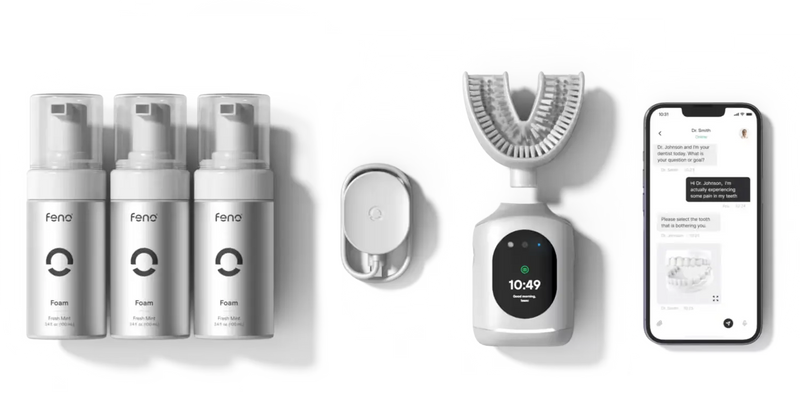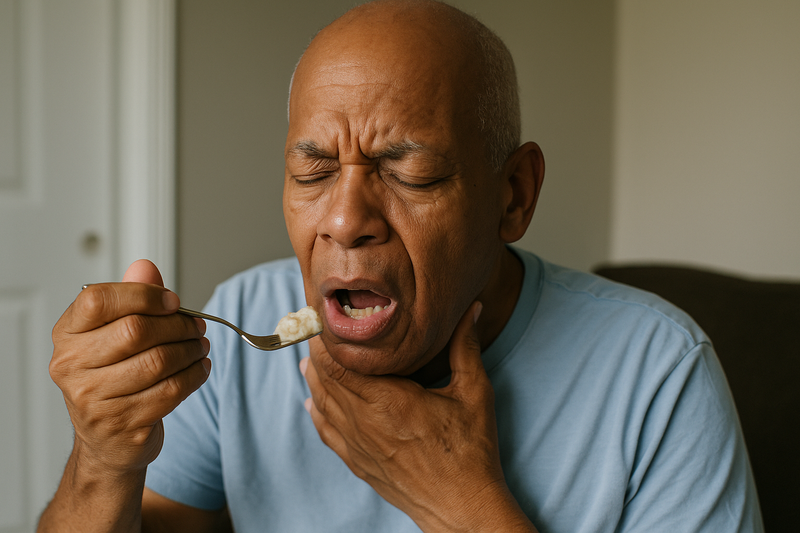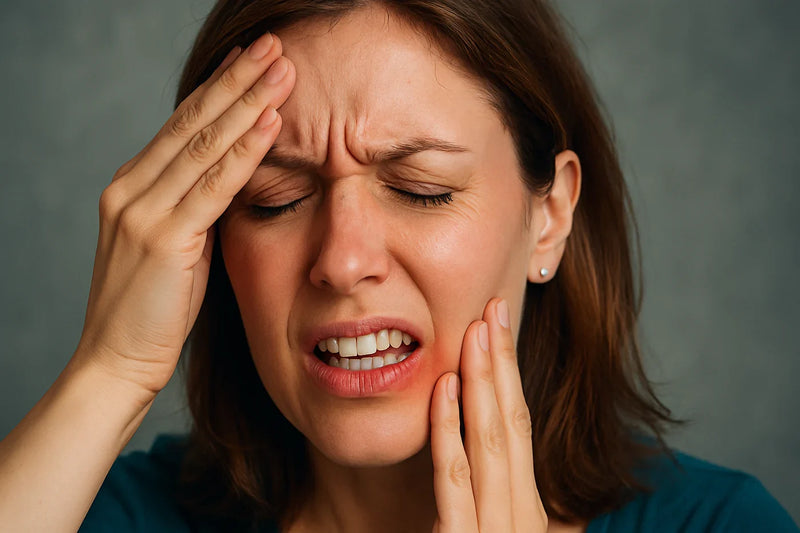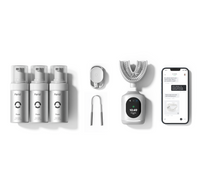
Facial Weakness and Oral Health After Stroke
Essential Takeaways
- Facial weakness after stroke increases oral health risks, but adaptive care and frequent cleaning can effectively protect stroke survivors from complications.
Understanding Facial Weakness After Stroke and Your Oral Health
Facial weakness, also known as facial paresis or paralysis, affects many stroke survivors and creates unique challenges for maintaining oral health. When the muscles on one side of the face don't work properly, simple tasks like chewing, swallowing, and clearing food from the mouth become difficult for the stroke survivor.
(Nursing Reports, 2023)
Why Facial Weakness Creates Oral Health Risks
Food Pooling and Debris Problems
Research shows that stroke survivors with facial weakness commonly experience food pooling on the affected side of the mouth. This happens because weakened facial muscles can't effectively move food around or help clear it after eating. Studies confirm that this food pooling leads to:
- Increased oral debris and food particles
- Higher plaque levels compared to healthy individuals
- Greater risk of gum disease and tooth decay
- More frequent oral discomfort and infections
The Science Behind the Problem
Multiple studies demonstrate that stroke survivors, particularly those with impaired oral musculature, have significantly higher rates of dental plaque, untreated tooth decay, and gum problems. The reduced self-clearing ability of the mouth means bacteria and food particles linger longer, creating an environment where oral health problems can develop more quickly.
Evidence-Based Strategies to Support Better Oral Health
Daily Oral Care Adaptations
Professional medical guidelines recommend these targeted approaches for stroke survivors with facial weakness:
Gentle but Thorough Cleaning:
- Use soft-bristled brushes or foam swabs for sensitive areas
- Consider electric toothbrushes for easier handling
- Brush more frequently throughout the day to prevent buildup
Strategic Rinsing:
- Rinse with water between meals and snacks
- Use antimicrobial mouth rinses as recommended by their healthcare team
- Try gentle swishing motions to help clear the affected side
Adaptive Oral Care Tools:
- Modified toothbrush handles for better grip
- Mouth props or bite blocks if recommended by the care team
- Full-mouth electric toothbrushes (like the Feno Smartbrush) that can clean all teeth simultaneously in 20 seconds, reducing the physical demands of brushing while ensuring comprehensive coverage
Professional Care Considerations
- Schedule dental cleanings more frequently (every 3-4 months instead of twice yearly)
- Work with a dentist experienced in post-stroke care
- Consider working with a speech-language pathologist for swallowing therapy
Eating and Drinking Tips for Caregivers
- Encourage smaller bites and slower chewing
- Help them use the stronger side of their mouth when possible
- Ensure they stay upright for 30 minutes after eating
- Offer thickened liquids if recommended by their healthcare provider
When to Seek Professional Help
Contact the stroke survivor's healthcare provider or dentist if you notice:
- Persistent bad breath or unusual taste
- Swelling or pain in their gums
- White patches or sores in their mouth
- Difficulty managing saliva or frequent drooling
- Signs of infection like fever or swollen lymph nodes
The Connection to Serious Health Risks
Poor oral health after stroke isn't just about comfort, it can lead to serious complications like aspiration pneumonia, where bacteria from the mouth enter the lungs. This makes maintaining good oral hygiene even more critical for stroke survivors.
Bottom Line: Proactive Care Makes a Difference
Facial weakness after stroke significantly increases the risk of oral health problems through food pooling and reduced mouth clearing ability. However, research-backed strategies including adaptive oral hygiene tools, frequent rinsing, and professional guidance can effectively reduce these risks and help stroke survivors maintain better oral health.
Working closely with the stroke survivor's healthcare team, including dentists, speech therapists, and occupational therapists, ensures personalized strategies that work for their specific situation. Whether you're a family member, friend, or caregiver, understanding these approaches can help you provide better support and protect their oral health and overall well-being during stroke recovery.

Feno Founders Edition Bundle
Advanced Oral Health in 20 Seconds with the Feno Smartbrush™
Get Yours Now!




